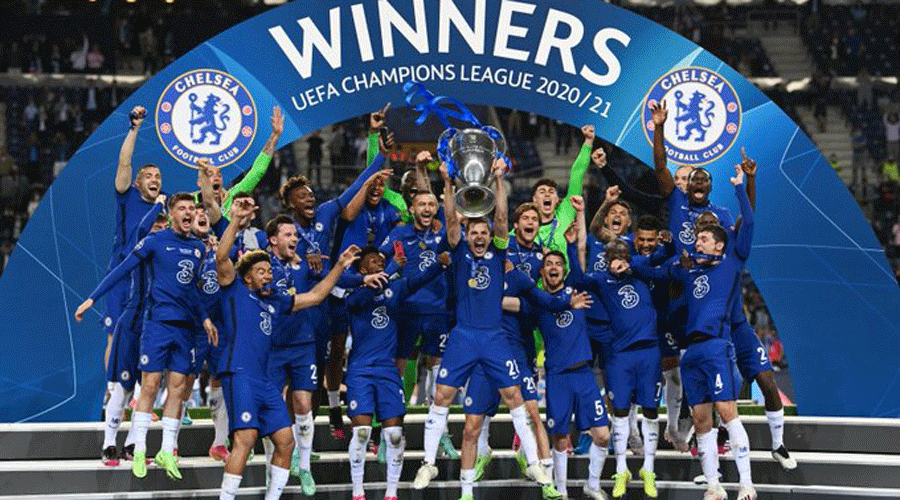All of a sudden, in the blink of an eye, there was time and there was space.
For 42 minutes, the Champions League final had been a frenzy, as though the Premier League had been distilled down to its whirling, spinning essence. Nobody paused for breath. Nobody stopped to think. And then, out of nowhere, everything seemed to stop.
A pass through the middle. A touch past the goalkeeper. A goal.
There is no rhyme or reason, not really, behind Chelsea being winners of the Champions League on the strength of its 1-0 victory over Manchester City on Saturday. Its season has been marked by one coach, a club legend, being fired, and another, a complete contrast, hired. Its squad is both breathtakingly expensive and curiously incomplete. Its most prolific scorer, at least in England, is a midfielder who only scores penalties. Its star striker does not score much at all. He does not even look like he might.
But then Chelsea always seems to find itself at home in chaos. This season has been a meticulously-planned triumph compared to 2012, the only previous time it landed the Champions League, the biggest prize in soccer. It is when logic is suspended that it seems to thrive.
Thomas Tuchel’s Chelsea should, strictly speaking, have been inferior to Manchester City, the restored Premier League champion, a billion-dollar project designed to win this game and this trophy, a team of poise and brilliance and unmatched depth.
And yet it was to Chelsea that the moment fell — Mason Mount finding himself blessed with the time and the space to thread a pass, Kai Havertz offered a clear run at goal — and once it had that moment, just before halftime, it never looked like letting it go.
City threw all it could at its opponent, and yet did not even deliver a glancing blow. What makes City special, what made it the favorite, is its mastery, its composure, its control. Sometimes, though, that is powerless against the unbridled force of chaos, tamed.
New York Times News Service











